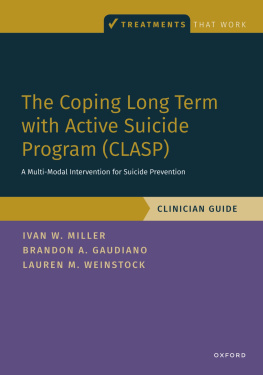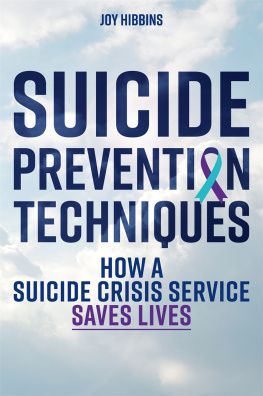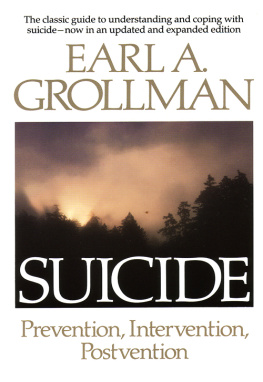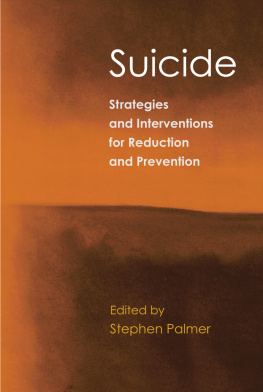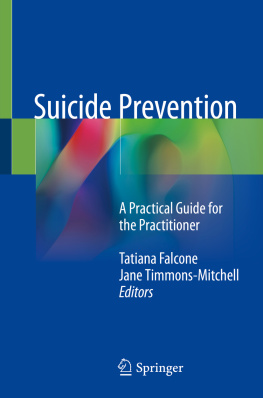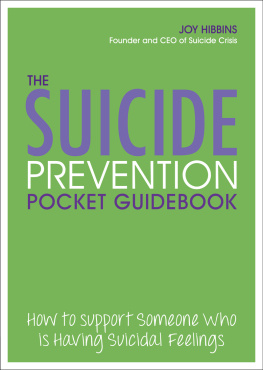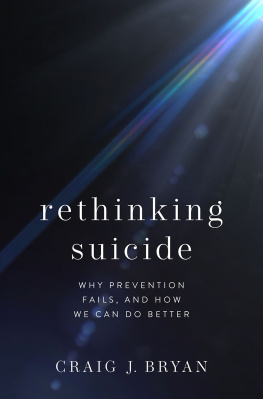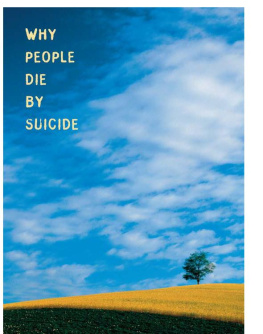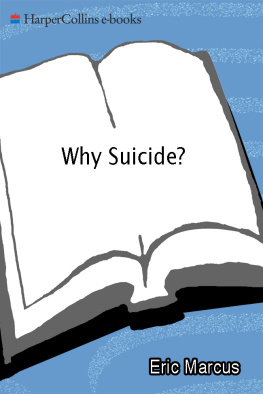The Coping Long Term with Active Suicide Program (CLASP)
Treatments That Work
Editor-In-Chief
David H. Barlow, PhD
Scientific Advisory Board
Anne Marie Albano, PhD
Gillian Butler, PhD
David M. Clark, PhD
Edna B. Foa, PhD
Paul J. Frick, PhD
Jack M. Gorman, MD
Kirk Heilbrun, PhD
Robert J. McMahon, PhD
Peter E. Nathan, PhD
Christine Maguth Nezu, PhD
Matthew K. Nock, PhD
Paul Salkovskis, PhD
Bonnie Spring, PhD
Gail Steketee, PhD
John R. Weisz, PhD
G. Terence Wilson, PhD

Oxford University Press is a department of the University of Oxford. It furthers the Universitys objective of excellence in research, scholarship, and education by publishing worldwide. Oxford is a registered trade mark of Oxford University Press in the UK and certain other countries.
Published in the United States of America by Oxford University Press
198 Madison Avenue, New York, NY 10016, United States of America.
Oxford University Press 2022
All rights reserved. No part of this publication may be reproduced, stored in a retrieval system, or transmitted, in any form or by any means, without the prior permission in writing of Oxford University Press, or as expressly permitted by law, by license, or under terms agreed with the appropriate reproduction rights organization. Inquiries concerning reproduction outside the scope of the above should be sent to the Rights Department, Oxford University Press, at the address above.
You must not circulate this work in any other form and you must impose this same condition on any acquirer.
Library of Congress Cataloging-in-Publication DataNames: Miller, Ivan W., 1950- author. | Gaudiano, Brandon A., author. | Weinstock, Lauren M., author. Title: The Coping Long Term with Active Suicide Program (CLASP) : A Multi-Modal Intervention for Suicide Prevention (clinician guide) / Ivan W. Miller, Brandon A. Gaudiano, Lauren M. Weinstock. Description: New York, NY : Oxford University Press, [2022] | Series: Treatments that work | Includes bibliographical references and index. | Identifiers: LCCN 2022000693 (print) | LCCN 2022000694 (ebook) | ISBN 9780190095260 (paperback) | ISBN 9780190095284 (epub) | ISBN 9780190095291 (online) Subjects: LCSH: Suicidal behaviorTreatment. | SuicidePrevention. Classification: LCC RC569 .M5399 2022 (print) | LCC RC569 (ebook) | DDC 616.85/8445dc23/eng/20220502 LC record available at https://lccn.loc.gov/2022000693LC ebook record available at https://lccn.loc.gov/2022000694
DOI: 10.1093/med-psych/9780190095260.001.0001
About Treatments That Work
Stunning developments in health care have taken place over the last several years, but many of our widely accepted interventions and strategies in mental health and behavioral medicine have been brought into question by research evidence as not only lacking benefit but also perhaps inducing harm (Barlow 2010). Other strategies have been proven effective using the best current standards of evidence, resulting in broad-based recommendations to make these practices more available to the public (McHugh and Barlow 2010). Several recent developments are behind this revolution. First, we have arrived at a much deeper understanding of pathology, both psychological and physical, which has led to the development of new, more precisely targeted interventions. Second, our research methodologies have improved substantially, such that we have reduced threats to internal and external validity, making the outcomes more directly applicable to clinical situations. Third, governments around the world and health care systems and policymakers have decided that the quality of care should improve, that it should be evidence based, and that it is in the publics interest to ensure that this happens (Barlow 2004; Institute of Medicine 2001, 2015; McHugh and Barlow 2010).
Of course, the major stumbling block for clinicians everywhere is the accessibility of newly developed evidence-based psychological interventions. Workshops and books can go only so far in acquainting responsible and conscientious practitioners with the latest behavioral health care practices and their applicability to individual patients. This series, Treatments ThatWork, is devoted to communicating these exciting new interventions to clinicians on the front lines of practice.
The manuals and workbooks in this series contain step-by-step detailed procedures for assessing and treating specific problems and diagnoses. But this series also goes beyond the books and manuals by providing ancillary materials that will approximate the supervisory process in assisting practitioners in the implementation of these procedures in their practice.
In our emerging health care system, the growing consensus is that evidence-based practice offers the most responsible course of action for the mental health professional. All behavioral health care clinicians deeply desire to provide the best possible care for their patients. In this series, our aim is to close the dissemination and information gap and make that possible.
Suicidal behavior is a major public health problem worldwide and in the United States. In fact, suicide is the 10th leading cause of death in the United States, and accounts for one death approximately every 11 minutes. Despite the devastating impact of this issue for individuals and society, relatively few interventions have been developed and documented by research as effective for reducing suicidal behavior.
This guide presents a newer intervention called the Coping Long Term with Active Suicide Program (CLASP) that targets multiple risk factors for suicide using a unique combination of formats (in-person and telephone) and therapeutic strategies (values-goals clarification, problem solving, significant other support). Representing a middle ground between intensive psychotherapies and very brief one-session interventions, CLASP is specifically designed as an adjunctive program that can be used as a complement to other ongoing psychotherapeutic and pharmacological treatments to reduce suicidal behavior in high-risk populations during times of acute risk or transition of care.
Based on 15 years of clinical and research work with patients and their family members coping with suicidal behaviors and their aftermath, The Coping Long Term with Active Suicide (CLASP): A Multi-Modal Intervention for Suicide Prevention will provide practitioners with a highly useful roadmap to reducing suicide risk in vulnerable patients and help to support long-term recovery.
David H. Barlow, Editor-in-Chief, Treatments That Work Boston, MA
References Barlow, D. H. (2004). Psychological treatments. American Psychologist, 59: 869878.Barlow, D. H. (2010). Negative effects from psychological treatments: A perspective. American Psychologist, 65(2): 1320.Institute of Medicine. (2001). Crossing the quality chasm: A new health system for the 21st century. Washington, DC: National Academy Press. Institute of Medicine (IOM). (2015). Psychosocial interventions for mental and substance use disorders: A framework for establishing evidence-based standards. Washington, DC: National Academies Press.McHugh, R. K., & Barlow, D. H. (2010). Dissemination and implementation of evidence-based psychological interventions: A review of current efforts. American Psychologist, 65(2): 7384.
Acknowledgments

